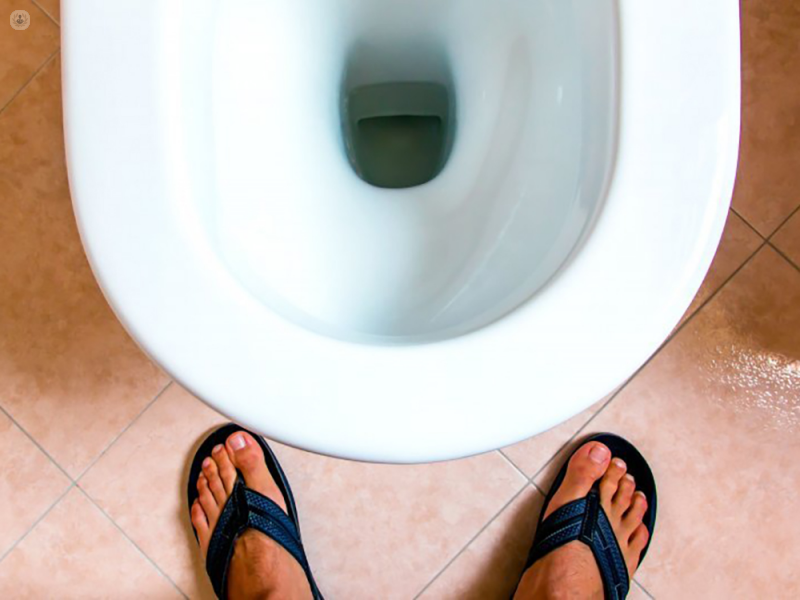The warning signs of prostate cancer and when to see a doctor
Written by:The prostate is a gland about the size and shape of a walnut that slowly grows bigger as you get older. Its main job is to make semen. Across the UK, around 47,000 men are diagnosed each year with cancer of the prostate - that equates to roughly 129 every day.
Knowing the symptoms of prostate cancer is very important, especially as you reach the age of 45 so that you can identify any potential signs and know when to get checked out by a doctor. So, we spoke to Mr Soumendra Datta, a leading consultant urologist to understand the warning signs of prostate cancer and when exactly you should go and see a specialist.

Are early prostate cancer symptoms obvious?
Most men with early prostate cancer don’t have symptoms, so the signs of early prostate cancer aren’t easy to recognise. Patients may not notice or feel anything until the cancer becomes advanced.
If you are over the age of 50 then you can start getting screened for prostate cancer. If two of your relatives have had prostate cancer, then it is advised that you start getting screened at 45 years old.
What are the main warning signs of prostate cancer?
Prostate cancer doesn’t normally show symptoms until the cancer has grown big enough to put pressure on the urethra. You should present to your doctor if you have urgency or notice any changes or difficulties with your urinary stream. These changes may include:
- Needing to pass urine more frequently, especially during the night
- Needing to pass urine more urgently
- Finding it difficult to start passing urine
- Taking a long time to pass urine
- Passing blood in the urine
- Noticing a weak urine flow
Having these symptoms doesn’t always mean you have prostate cancer. Benign prostatic enlargement is a common condition in men as they get older and very treatable. The condition is not cancerous but can cause many of the symptoms listed above too. More often than not, urinary symptoms indicate benign prostate enlargement rather than prostate cancer, but it’s very important to see your doctor to get checked out.
Why does prostate cancer cause urinary problems?
The prostate and parts of the urethra (the pipe that carries urine from the bladder out of the penis) are positioned very closely in the body. As the cancer enlarges on the prostate, it can press on the urethra and cause problems or changes in the urine flow.
When should you see a doctor?
Any man that experiences prostate cancer symptoms, such as problems with urinating, should go and get checked out by a doctor, no matter how mild their symptoms are.
Are men with repeat UTIs at a higher risk of prostate cancer?
Urinary tract infections (UTIs) in men are not common. If men get frequent UTIs it could be a symptom of prostate cancer. Recent studies have also shown that men who get repeat UTIs have a higher risk of prostate cancer than men without. You should visit your doctor if you are getting UTIs.
Does having an enlarged prostate increase your cancer risk?
No. Most enlarged prostates are benign. Also, prostate cancer can develop from someone who has a small prostate so they aren’t related.
If you have problems with your urine flow, you should visit a urologist. Mr Soumendra Datta is a highly skilled and dedicated consultant urologist. Visit his Top Doctors profile and make an appointment.


